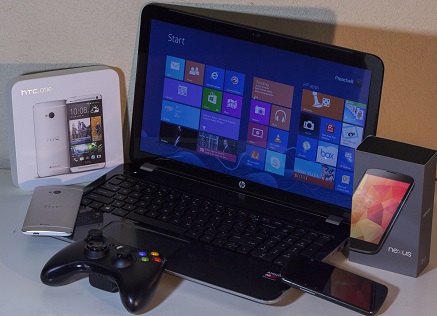The war of the operating system (OS) has existed since the early days of the OS. It’s not about which OS is the best, but rather which OS suits you best. Everyone has different needs and usage habits.
The flexibility of Android devices accommodates my affinity for tweaking settings frequently. On the other hand, you may not care as much for customizations and would rather have an easy smart device that lets you chat and take great photos; why not consider an iPhone, or even Windows?

Here’s a breakdown of the different operating systems:
Android
Android does everything: gaming, multimedia, photography, everyday calling and messaging, and more. Plus, it offers users a heavy control over their experience. Want a simple phone-and-SMS-only experience? A custom lock screen and launcher with informative widgets? Enhanced camera app? Android’s got it all, with apps and settings for almost everything. The latest version, Android 5.0 (Lollipop), introduces a new design language that’s more refined, consistent, and focused on content. If you want a flexible OS and access to a huge variety of apps and games, give Android a try.
iOS
Since its first appearance, Apple has worked hard to refine the usability and simplicity of their platform that makes even novice users feel at home. Also, it attracted enough developers to fill their App Store with over 1.3 million apps (and counting). iOS is conveniently integrated with other Apple services, like iTunes for purchasing media and sharing it across your devices, iCloud for backing up your photos to the cloud, iCloud Drive for all your other files, and Mac OS to handle SMS and calls from your desktop.
The current version, iOS 8, is geared to securely handle home automation, in-car navigation and entertainment, personal-health tracking, and cross-device app management. If you want to plug into the Apple ecosystem and get the most popular apps on a powerful, well-built mobile, check it out.
Windows
Simple, easy, personal: that’s Windows Phone in a nutshell. Currently at version 8.1, Windows Phone includes a novel interface that first-timers can get used to in a pinch and allows quick access to messages, contacts, and content you care about right on the home screen.
Where it falters, in comparison to other mobile OSs, is its app ecosystem, which is smaller by comparison; this may or may not be a problem for you. Those who like it simple will love Windows Phone’s bloat-free interface.
